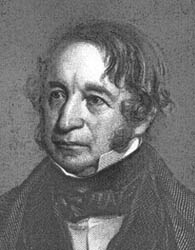Nathan Appleton
| Nathan Appleton | |
|---|---|
 |
|
| Member of the U.S. House of Representatives from Massachusetts's 1st district |
|
|
In office March 4, 1831 – March 3, 1833 |
|
| Preceded by | Benjamin Gorham |
| Succeeded by | Benjamin Gorham |
|
In office June 9, 1842 – September 28, 1842 |
|
| Preceded by | Robert Charles Winthrop |
| Succeeded by | Robert Charles Winthrop |
| Personal details | |
| Born |
October 6, 1779 New Ipswich, New Hampshire |
| Died | July 14, 1861 (aged 81) Boston, Massachusetts |
| Political party |
National Republican Whig |
Nathan Appleton (October 6, 1779 – July 14, 1861) was an American merchant and politician.
Appleton was born in New Ipswich, New Hampshire, the son of Isaac Appleton and his wife Mary Adams. Appleton's father was a church deacon, and Nathan was brought up in the "strictest form of Calvinistic Congregationalism." He was educated in the New Ipswich Academy. He then entered Dartmouth College in 1794, however, that same year he left college to begin mercantile life in Boston, Massachusetts in the employment of his brother, Samuel Appleton (1766–1853), a successful and benevolent man of business, with whom he was in partnership from 1800 to 1809.
In 1813 Appleton co-operated with Francis Cabot Lowell, Patrick T. Jackson, Paul Moody and others in introducing the power loom and the manufacture of cotton on a large scale into the United States, a factory being established at Waltham, Massachusetts in 1814. The Waltham mill employed the first power loom ever used in the United States. This proving successful, he and others purchased the water-power at Pawtucket Falls, and he was one of the founders of the Merrimac Manufacturing Company. The settlement that grew around these factories developed into the city of Lowell, of which in 1821 Mr. Appleton was one of the three founders. In a pamphlet entitled The Origin of Lowell, Appleton wrote of the mills: "The contrast in the character of our manufacturing population with that of Europe has been the admiration of most intelligent strangers. The effect has been to more than double the wages of that description of labor from what they were before the introduction of this manufacture".
...
Wikipedia
